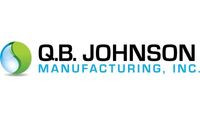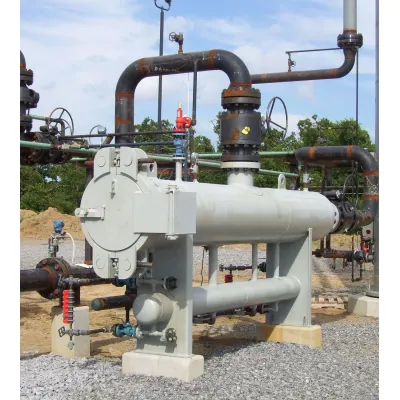

QB Johnson Manufacturing, Inc.
- Home
- Companies
- QB Johnson Manufacturing, Inc.
- Products
- QBJ - Natural Gas Filter Separators

QBJ - Natural Gas Filter Separators
Natural gas streams often contain ultra fine particles, specifically those under five microns in diameter, which pose significant challenges for standard filtration methods. QBJ's filter separators are tailored to effectively remove these small contaminants, including mists, fogs, and dust, from natural gas. Engineered with a dual-stage filtration process, these separators are available in both horizontal and vertical configurations to cater to diverse installation requirements. They are optimally designed to ensure high performance in demanding environments, thereby enhancing the purity of the natural gas and protecting downstream equipment from potential damage due to particle contamination. The adaptability of QBJ's filter separators makes them a critical component in gas processing applications.Most popular related searches
natural gas engine
natural gas filter
glycol dehydration unit
lubricant oil
gas engine
heat exchanger
natural gas equipment
heat meter
Most natural gas streams contain solid and liquid particles smaller than five microns in diameter. These ultra fine particles are difficult to remove by conventional means and can present a serious processing problem. Our filter separators are specifically designed to remove contaminates such as fine mists, fogs, and dust from natural gas streams. QBJ’s filter separators are designed in either a horizontal or vertical configuration and are comprised of two stages.
- Upstream of dry desiccant dehydrators to prevent compressor lube oil fog or other liquid contaminants from entering the adsorber bed causing degradation and loss of efficiency.
- Downstream of dry desiccant adsorbers to remove desiccant dust and liquid particles which cause valve erosion and small orifice erosion or plugging in controllers.
- Upstream of compressors to remove dust and liquid which cause damage to the compressor valves and cylinders.
- Upstream of glycol dehydrators and amine units to prevent contamination of the glycol or lean amine solutions.
- Downstream of glycol dehydrator and amine units to recover expensive treating chemicals.
- Upstream of cryogenic systems to prevent plugging and freezing of the heat exchangers.
- Upstream of metering and regulating custody transfer stations and of town border stations to decrease maintenance and to prevent service interruption.



